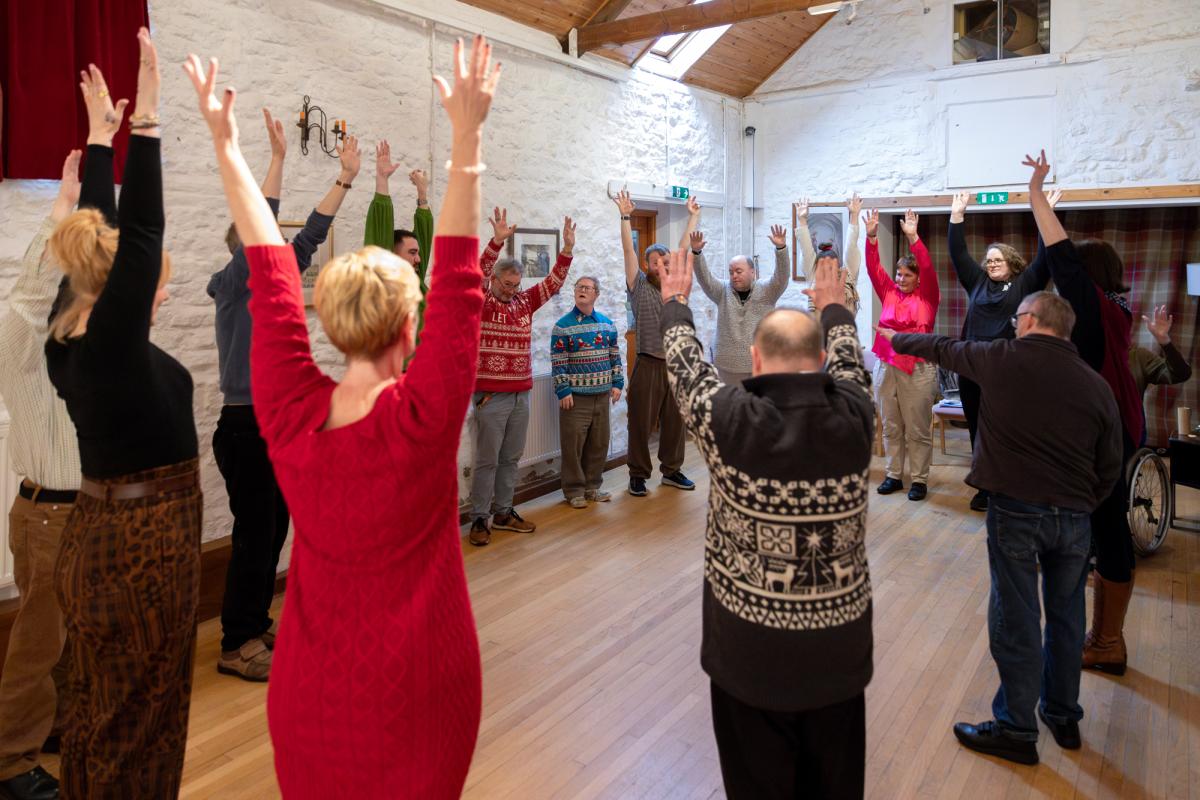
Culture, Health & Wellbeing Alliance, alongside colleagues from The Lived Experience Network, Ideas Alliance and the wider sector, recently selected and announced the winners for the CHWA Collective Power Award 2025.
Operating in a time of increasing global divide, humanitarian crisis and political unrest means it’s never been more vital to bring organisations and people with different skills and experience together to help drive meaningful, positive change. From large place-based, multi-organisational responses to small, grassroots, people-led initiatives, the applications were an exciting and eclectic mix of what it means to be stronger together. CHWA analyzed application data to draw out commonalities, themes and focus areas, and were impressed by consistent use of co-production and commitment to embedding lived experience in nearly all of the applications. We feel this is a welcome focus in the sector going forward.
We noticed that standout projects this year did more than bring partners together; they recognised the unique qualities and strengths that each partner had, which in turn enabled them to create something that simply couldn’t have existed otherwise. This was mostly evident in Collective Power Award winners The Knife Angel Project, where meaningful and purposeful partnerships across arts organisations, statutory services and young people transformed a community in the wake of a tragic fatality.
Knowing that navigating complex or rigid systems can be more difficult for some, we were also pleased to see so many more applications using creative health projects to focus on systems change. This influences not just the current project, but also future attitudes and approaches for all involved, ultimately creating a more longstanding impact. Projects such as Powering Up was an ambitious meeting of young people, clinicians and artists as equal collaborators, to address the levels of disengagement with NHS systems amongst young people.
The outcomes of much of the work have also widened beyond immediate wellbeing benefits to help develop agency, safety and emotional literacy in other areas of participants lives. This feels particularly vital when working with already marginalised or vulnerable community members. A great example of this was forum theatre group A Rehearsal For Life, whose work with learning disabled adults to co-produce a program allows them to practice and act out complex social interactions, such as issues of consent, crime and privacy in a safe environment.
Embedding lived experience from inception to evaluation is always recommended, but what we were delighted to see was a number of lived experience leaders and collectives forming their own organisations and projects, often with limited resources. Recognising a gap in support, The Addiction Recovery Arts Network was established to provide a platform to connect individuals, organisations and stakeholders working in recovery arts. Founded and run by a group of recovering artists, it has grown its membership internationally, showcasing best practice through articles, publications, podcasts and more.
One of the ways CHWA was challenged throughout this process was to consider how we measure or assess positive impact. Whilst large participant numbers are impressive and sometimes appropriate, they won’t be right for every project, and, in some cases, can dilute impact and compromise safety and integrity. Given the pressure to demonstrate impact in a difficult funding landscape, we were delighted to see a number of projects, including shortlisted project Wanna Dance?, embracing a radically personalised, targeted approach which enriched the experience of participants and resulted in deep and meaningful change.
We know that the sector is operating under complex and intersectional challenges, and firmly believe that the only way to navigate this is to continue to draw on the strength of partnerships and collaborations, and place lived experience experts at the centre of design and delivery. We’re excited to see how ideas around collective power progress in the coming year.
If you’ve been inspired by the CHWA Awards and want to start your own project, we recommend you look at the Creative Health Quality Framework.
For more information on our shortlist, winners, judges and the previous awards click here
